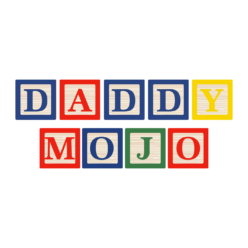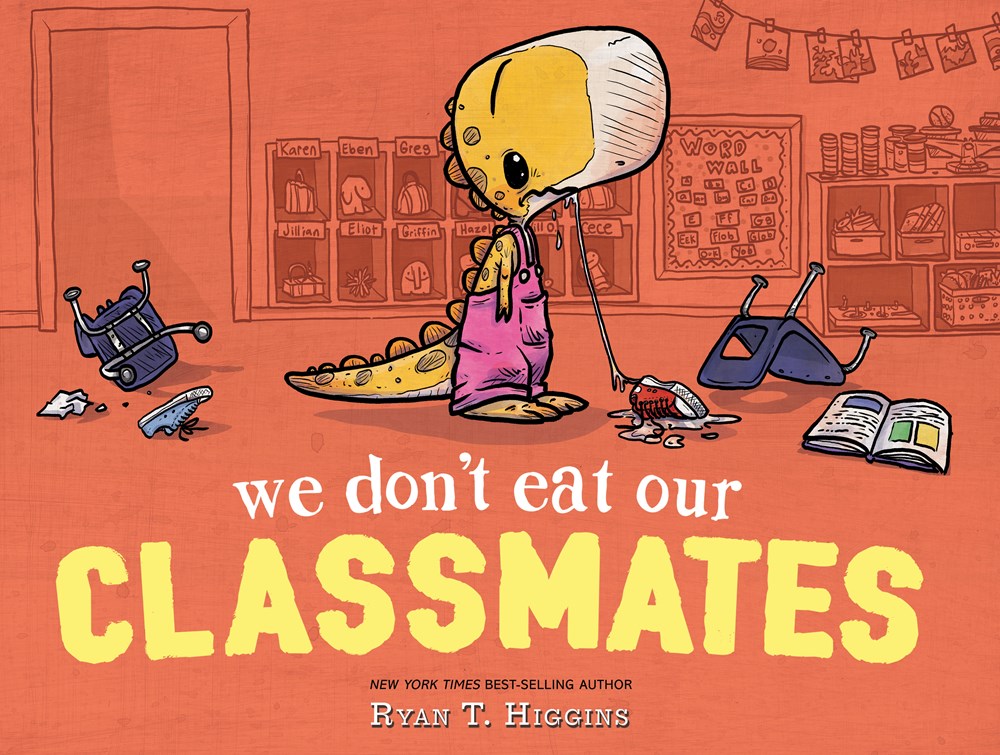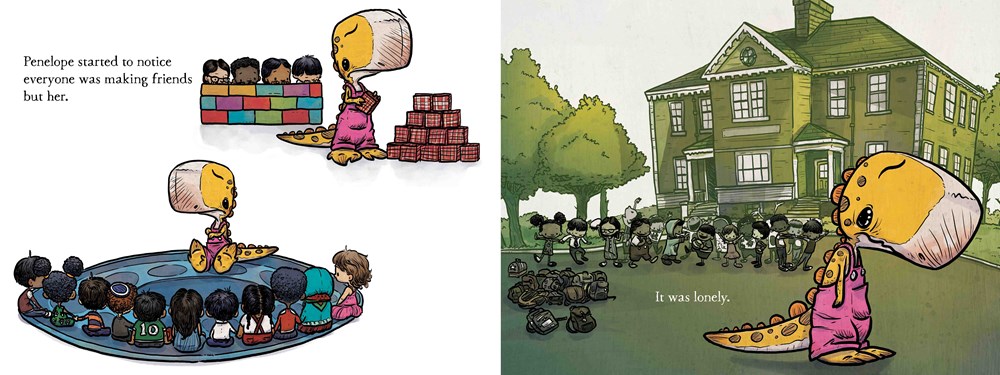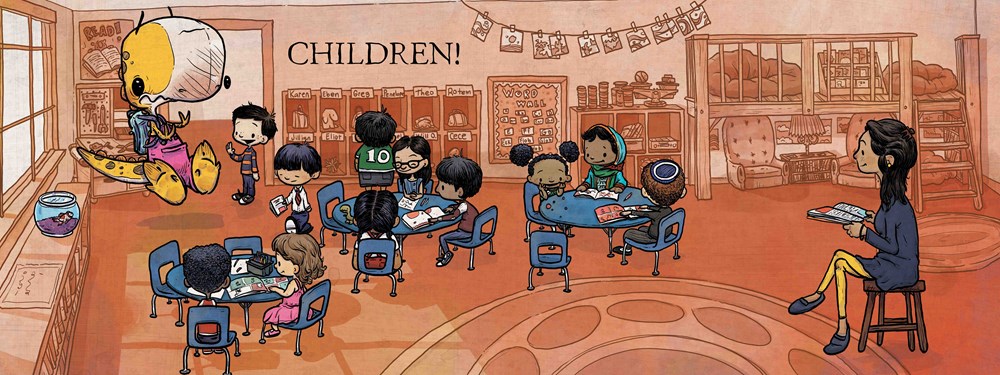Penelope Rex is at a crossroads. She’s about to go to school and it’s a bit time change. Either she’s going into kindergarten or first grade; it’s one of those landmark years in early elementary school. She’s quite worried about making friends in her class and how they’ll treat her, given that she’s a T. Rex. We Don’t Eat Our Classmates by Ryan T. Higgins is laugh-out-loud comfort food for readers 4-8. This is the kind of book that parents don’t mind reading more than once. It’s a great-good-night book and one that will make it through to the grandchildren’s library in 20 years or so.
Once Penelope gets to school things aren’t going as planned because all of the students in her class are human children! So the first thing she, as a T. Rex does is to go about eating all of them. Alas, this upsets her teacher Mrs. Noodleman who promptly asks her to spit all of them out of her mouth and not to do it again.
She wants to make friends, she really does. And she tries not to eat William on the second day of school, but in the end she gave in to temptation. She talks to her mother, who provides her with some sage advice, but as the days go on she realizes that she’s not making any friends and that she’s lonely.
The thing about We Don’t Eat Our Classmates is that the book is 100% relatable to children between the ages of 4-8. In any child’s class there’s a kid who is ‘eating their classmates’. One of the great things about books like this is that kids realize that even though they make mistakes or may not behave like little angels it’s always possible to turn it around.
In Penelope’s case she gets a taste of her own medicine with the class pet, a goldfish named Walter. Once she realizes what it’s like to be treated that way or to have that done to you she quickly changes her behavior.
I know that the plot is familiar to lots of other children’s books. It’s the case of teaching a lesson through allegory or absurdity. The little girl isn’t really eating her classmates and she isn’t really a T. Rex. However, she really is doing something that she shouldn’t be and it’s impacting her ability to learn or make friends in class. The other powerful aspect of the book is the art. Just look at the emotions that this dinosaur brings out. I’m all but yelling at my 9 year old self to stop being such a jerk on the bus (circa 1979) to younger students.
Children know it too, at least most of the time. They know when they shouldn’t do something, but for some reason they do it. It’s the difference between good attention and bad attention and children will learn sooner or later, parents and teachers just hope it happens sooner.
We Don’t Eat Our Classmates addresses this in a silly, fun way that kids can understand or at least start to learn how undesirable behavior impacts others. It may not be eating. It might be biting, touching, kissing, hitting or anything else that is not appropriate for children to do for one reason or another. This book by Ryan T. Higgins is just the thing to get your late pre-K through early elementary school student on the right path regarding behavior that might not be ideal.







 Facebook
Facebook Twitter
Twitter Flickr
Flickr GooglePlus
GooglePlus Youtube
Youtube